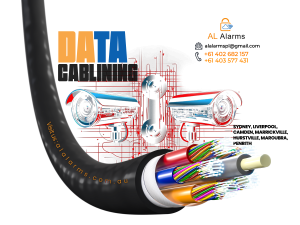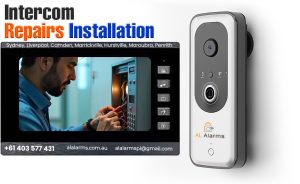In the realm of video surveillance, two primary technologies dominate the landscape: Digital Video Recorders (DVR) and Network Video Recorders (NVR). Both systems serve the essential function of recording video footage, but they do so in fundamentally different ways.
This blog will delve into the intricacies of Digital, Network Video Recorders in Sydney, Marrickville, Hurstville, Maroubra, Camden, Liverpool, and Penrith, exploring their features, advantages, and applications .
[A] Digital Video Recorders (DVR) and How the System Works :-
(1) What is a DVR ?
Simply put, a Digital Video Recorder is an electric device that records video in a digital format to a disk drive. USB flash drives, SD memory cards, SSD, and other local or networked message devices are also used to store the records. The systems are commonly used in television systems and security surveillance setups.
(2) Understanding the Functionality of the DVR System :-
DVRs convert analogue video signals from cameras into digital format. This conversion process involves capturing the video feed, compressing it, and storing it on a hard drive. The DVR system typically includes a user interface for managing recordings, playback, and camera settings.
(3) Types of Digital Video Recorders (DVRs) :-
(I) Standalone DVRs :
These are dedicated devices designed solely for recording and managing video footage. This system is the oldest one with a single unit constituted with all the components inside including the CPU.
(II) PC-based DVRs :
These systems use a computer with DVR software and video capture cards to record and manage video. This system also includes a motherboard, a video board, a hard drive, and a network card. You can use IP cameras with Ethernet ports.
6 Key Features of (Digital Video Recorders) DVRs :-
(i) Multiple Camera Support :
The best feature of this system is that it can record footage from multiple cameras at the same time.
(ii) Mobile Surveillance :
Another important feature of this DVR system is that it allows users to manage, record, and view video surveillance on any device such as mobile.
(iii) High-Quality Recording :
DVRs can record high-definition video, providing clear and detailed footage.
(iv) Storage Capacity :
They offer substantial storage options, allowing for extended recording periods.
(v) Remote Access :
Many DVRs support remote access, enabling users to view live or recorded footage from anywhere via the Internet.
(vi) Motion Detection :
Advanced DVRs come with motion detection capabilities, which can trigger recording only when movement is detected, saving storage space.
The Places Where You Install and Use the DVRs :-
(i) Home Security :
DVRs are widely used in home security systems to monitor and record activities around the property. You can protect your property from unwanted intrusion. For home security, you can install this system with the help of a professional.
(ii) Commercial Surveillance :
Commercial properties are of high value and they require bird-view security. Business owners also use DVRs to keep an eye on their premises, ensuring safety and security. Having the system in place gives you peace of mind.
(iii) Broadcasting :
DVRs are also used in television broadcasting to record and replay shows and events. The system helps to store the digital stream directly to a disk. It also subsidises the cost that comes with using the system.
Understanding the compatibility and scalability of Digital, Network Video Recorders in Blacktown, Burwood, Picnic Point, Homebush, Castle Hill, Mona Vale, and Bankstown is important to make an informed decision .
[B] Network Video Recorders (NVR) :-
1. What is an NVR ?
A Network Video Recorder (NVR) is a specialised computer system that records video to a disk drive, USB flash drive, memory card, or other mass storage device. Unlike DVRs, NVRs connect to cameras through a network, typically as part of an IP video surveillance system. The system can used to secure several facilities such as retail stores, financial institutions, restaurants, municipal buildings and many other important places.
2. How NVR Systems Work :
NVRs receive video data from IP cameras over a network. The video is already encoded and processed by the cameras, so the NVR’s primary function is to store and manage the footage. This setup allows for higher flexibility and scalability compared to DVR systems.
3. Different Types of NVRs :
(I) Standalone NVRs :
These are dedicated devices designed for recording and managing IP camera footage. These systems are ideal for small businesses and homes. It can also provide analytics like license plate recognition, people counting, and heat maps.
(II) Software-based NVRs :
These systems use a computer with NVR software to manage and store video from IP cameras. Using an IP camera system, this system can be used to create video surveillance systems that transcend from one camera to thousands of cameras in several locations.
4. Essential Features of NVRs :
(i) High-Resolution Recording :
NVRs can handle high-resolution video, including 4K and beyond, providing superior image quality. You need to know that the resolution of the camera affects the quality of the video.
(ii) Scalability :
NVR systems can easily scale by adding more IP cameras to the network without significant hardware changes. It does not care about setting up a large network of cable offering an easy surveillance system.
(iii) Remote Access :
Like DVRs, NVRs support remote access, allowing users to monitor their cameras from anywhere. You can stream the recording of your place from anywhere on any device.
(iv) Advanced Analytics :
Many NVRs come with built-in analytics, such as facial recognition, license plate recognition, and object detection.
(v) Ease of Installation :
Unlike DVR systems, NVRs are comparatively simple to install and maintain. You just need to use Ethernet cables to connect each camera to an available port on the back of the NVR, establishing a connection to an NVR.
5. The Places Where You can Install NVR System for Surveillance :-
(i) Large-Scale Surveillance :
NVRs are ideal for large-scale surveillance systems, such as those used in airports, casinos, and city surveillance.
(ii) Retail Security :
Retailers use NVRs to monitor store activities, prevent theft, and analyze customer behaviour.
(iii) Industrial Monitoring :
NVRs are used in industrial settings to monitor processes, ensure safety, and maintain security.
Having a robust understanding of the use, features and applications of Digital, Network Video Recorders in Sutherland, St Marys, Campsie, Parramatta, Quakers Hill, Strathfield, and Pennant Hills is the first step towards securing your home or office from unwanted theft and intrusion.
Now, let us discuss the differences between the systems so that you can choose any of them for
your needs.
Comparison Between DVRs and NVRs :-
1. Technology and Compatibility :
DVRs :
This system uses analogue cameras and coaxial cables. They are generally less expensive but offer lower flexibility and scalability.
NVRs :
This system uses IP cameras and network cables. They provide higher flexibility, scalability, and better image quality but are typically more expensive.
2. Installation and Setup :
DVRs :
Installing DVRs is easier to set up for smaller systems. They require direct connections between cameras and the DVR.
NVRs :
Installing NVRs is more complex to set up due to network configurations but offers greater flexibility in camera placement and system expansion.
3. Video Quality :
DVRs :
The system is limited by the quality of analogue cameras, usually up to 1080p.
NVRs :
You can handle high-resolution video, including 4K and beyond, depending on the IP cameras used.
4. Cost :
DVRs :
You need to know that installing a DVR system for limited space is generally cost-effective.
NVRs :
This recording system costs more than the DVR system. But it offers better long-term value due to scalability and advanced features.
5. Use Cases :
DVRs :
This device is suitable for small to medium-sized installations where budget is a concern, and high-resolution video is not critical.
NVRs :
This device is ideal for large-scale installations requiring high-resolution video, advanced analytics, and scalability.
Both Digital Video Recorders (DVR) and Network Video Recorders (NVR) play crucial roles in modern video surveillance systems. The choice between the two depends on various factors, including the scale of the installation, budget, and specific surveillance needs.
DVRs are a cost-effective solution for smaller setups, while NVRs offer superior flexibility, scalability, and advanced features for larger and more complex installations. Understanding the differences and capabilities of each system can help you make an informed decision to meet your surveillance requirements.
By leveraging the strengths of DVRs and NVRs, you can ensure robust and reliable video surveillance, enhancing security and peace of mind.
So, if you are planning to set up a robust surveillance system by installing CCTV and security cameras, you can reach out to Al Alarms.
We provide high-quality Digital and network Video Recorders in West Mead, Lidcombe, Picton, Kings Wood, Kings Grove, Marrickville, and Botany. We are known for providing the best technologies and quality installation services to protect your family and businesses.
Contact us now and see how we help you set up the best CCTV surveillance system with necessary storage and security needs.




